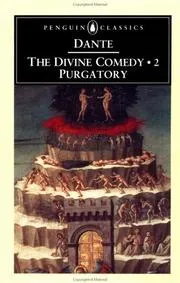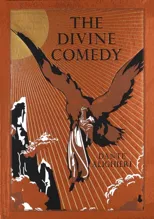The Divine Comedy
Purgatory
(Author) Dante AlighieriThe second volume of Dante's Divine Comedy Beginning with Dante's liberation from Hell, Purgatory relates his ascent, accompanied by Virgil, of the Mount of Purgatory - a mountain of nine levels, formed from rock forced upwards when God threw Satan into depths of the earth. As he travels through the first seven levels, Dante observes the sinners who are waiting for their release into Paradise, and through these encounters he is himself transformed into a stronger and better man. For it is only when he has learned from each of these levels that he can ascend to the gateway to Heaven: the Garden of Eden. The second part of one of the greatest epic poems, Purgatory is an enthralling Christian allegory of sin, redemption and ultimate enlightenment. For more than seventy years, Penguin has been the leading publisher of classic literature in the English-speaking world. With more than 1,700 titles, Penguin Classics represents a global bookshelf of the best works throughout history and across genres and disciplines. Readers trust the series to provide authoritative texts enhanced by introductions and notes by distinguished scholars and contemporary authors, as well as up-to-date translations by award-winning translators.
Dante Alighieri
Dante Alighieri was an Italian poet and philosopher born in Florence in 1265. His most notable work is "The Divine Comedy," a narrative poem that follows the author's journey through Hell, Purgatory, and Paradise. This work is considered a masterpiece of world literature and a cornerstone of Italian literature. Dante's writing style is characterized by its intricate symbolism, vivid imagery, and profound philosophical insights. His contributions to literature include popularizing the use of vernacular language in poetry and shaping the development of the Italian literary tradition. Dante's impact on the literary genre of epic poetry and his enduring influence on Western literature make him one of the most celebrated and influential writers in history.






